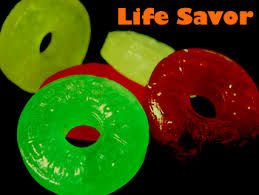

Every one has a Jim. My Jim is a character—a whirling dervish, he’s constantly in motion, always on the go, cramming one activity in on top of another. If he's not working, he's on the golf course, driving to Atlantic City to play blackjack, arranging the next get-together with the boys. He talks fast, eats fast, and, well, you name it, does everything fast.
What does Jim do for relaxation? I don't know. I bet he doesn't know either. Relaxation for Jim is a foreign word.
The person who does not know Jim would expect him to spin endless tales of frolic, hilarity, and out and out fun. After all, he crams his life with one activity after another. But that’s the problem with Jim. While he does a lot, he hurries lickity-split through everything he does, and does not take the time to experience the pleasures and joys that are available.
No wonder conversations with Jim often end up as complaint sessions. He talks about how tired and depleted he often feels. He doesn’t exactly use these words, but he complains about feeling empty and adrift, as if there is little purpose to his life. He snaps at people and experiences an inordinate number of interpersonal conflicts. As one would expect, his marriage to an intelligent, accomplished, and beautiful woman is distant and contentious.
Jim would probably never seek my counsel. After all, that would take precious time away from his careening to the next activity. If he would, I’d start by getting to the bottom of what drives him to be constantly on the go, asking these questions:
• Like some addicts, does he hold the belief that he must ingest the highs of excitement and exhilaration pretty much all the time?
• Does he think it would be unbearable to feel any degree of emotional discomfort — be it anxiety, anger, sadness, or boredom — and therefore keeps on the go to avoid having to ever feel upset?
• Perhaps he harbors deep-seated fears of disapproval and rejection and uses “fast and furious” to keep himself safe from getting close to others?
Once, he and I uncovered and alleviated the driving motivation for him to always be on the go, I’d coach him to be alert to those moments of pleasure that cross his path. More importantly, I’d urge him to take a few minutes and wallow in those pleasures before moving on to the next activity.
This is what we call savoring – first, being aware of your pleasures, and, then, second, deliberately paying attention to and enjoying the experience of those pleasures. We know that people who take the time to intentionally savor reap a variety of benefits, such as:
• discovering the pleasures that exist in their lives, but which stay hidden by the hustle and bustle of everyday life;
• deepening their experience of their pleasures and, in the process, ending up feeling pleasure about their pleasures, a two-for-the-price-of-one deal;
• increasing their satisfaction, pleasure, and happiness.
What About You
Jim may be an extreme case, but isn’t there is a little bit of Jim in all of us? The press of our responsibilities, the sheer speed of daily life, and the number of people who depend on us can easily force us to careen from one activity to the next, with little time for reflection or absorption. What this does is squeeze out access to the pleasures and gratifications that are right there in front of us.
Now is an opportunity for you to do a little self-diagnosis. Ask yourself:
• Do I rush through too many of the things that I do and thereby fail to take advantage of the opportunities that exist to savor pleasure?
• Do I skim the surface of the pleasures I do experience, staying in the shallow water, so to speak, while I could, if I thought to do so, dive deep into them, floating where it is cool and clear?
• How much more pleasure could I have each day if only I took the time to savor?
If you’re like me, I’m sure you’ve discovered that opportunities to savor your pleasures are bountiful in your life. If so, don’t wait; do something about it. Read on.
Live it.
Jim may not be willing to tackle the five savoring strategies listed below. He would probably say, “Can't, too busy.” I hope you do, though, because they will bring more happiness to you. I guarantee it.
1. Sit in a quiet place free of distraction. List on paper all the things in your life you can possibly savor. These come in four categories: (1) accomplishing – savoring the experience of doing something competently; (2) basking – savoring praise and congratulations; (2) marveling – savoring the wonders of a moment of joy (a beautiful sunset, the Grand Canyon, the music of Chopin); (4) luxuriating – savoring some sensory pleasure (the feel of a hot shower, the taste of chocolate ice cream, the smell of a rose). Be expansive; include anything and everything you can think of, leaving nothing out.
2. Be alert. When a savoring opportunity arises, take a moment to enjoy it, if only for a few seconds. Do this at least once a day until it comes more automatic; then increase the numbers. Consciously immerse yourself in these pleasures. Don't think, just experience, and be with it.
3. Share these savoring experiences with others. Tell them about the pleasures you had as fully and richly as you possibly can. This will deepen the experience for you. Better yet, arrange to engage in these experiences with another beforehand, preferably with someone to whom you feel deeply connected. You then can savor the pleasure itself, as well as savoring the pleasure of sharing this experience with a loved one.
4. Be especially attentive to savoring the pleasures you get when with your loved ones, your close friends, even your pets. Interpersonal pleasures are some of the richest.
5. Lay in bed at night and relive your pleasurable experiences, all the while savoring them over and over again. Why limit a pleasure to only the first go-around.
Going Forward
It has been an absolute pleasure sharing this blog with you. I find that communicating with you reinforces my commitment to bring happiness into my own life as well helping you find happiness. A real win-win, I think.
Please follow through on the strategies I shared above. Remember: Only action will make a difference, so get to it. Savor, savor, savor.
Until the next blog, please live healthy, happy, and with passion.
Russell Grieger, Ph.D. is the author of several self-help books, all designed to empower people to create a life they love to live. These include: Unrelenting Drive; Marriage On Purpose; and The Happiness Handbook (in preparation). You may contact Dr. Grieger for more information at grieger@cstone.net.



